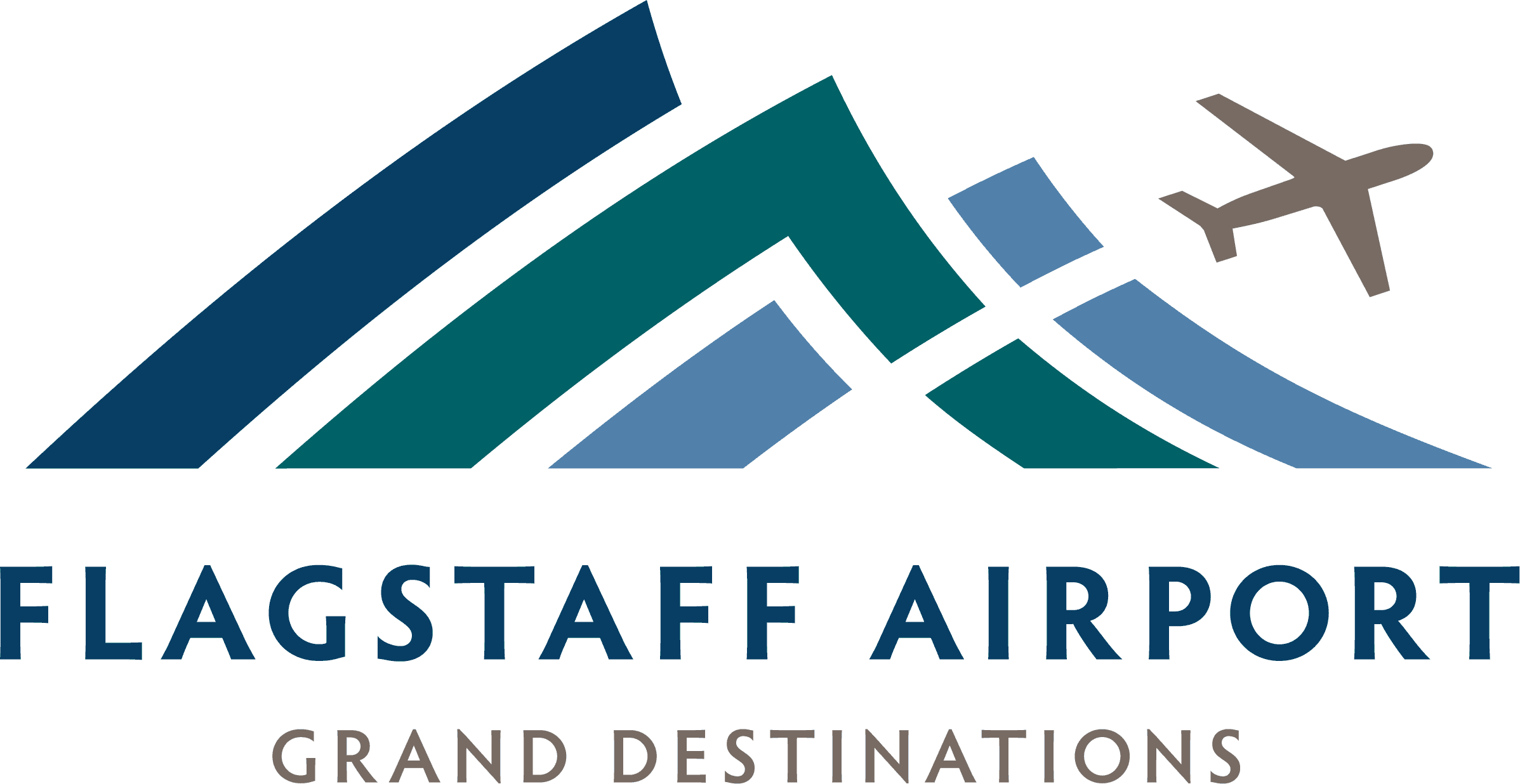By Sierra Ferguson, Arizona Daily Sun
Parking at the Flagstaff Airport will not be free for much longer. Starting on or around July 1, travelers will have to pay between $2 and $8 to park at Pulliam. For those who aren’t planning to leave their vehicle overnight, the fee is $2 per hour. Depending on the lot a traveler chooses, overnight parking could cost $6 or $8 a day — the maximum weekly rate is $48. Airport leadership told the Arizona Daily Sun that kiosks will only accept credit cards when the system gets up in running in July.
“A couple of weeks before that we’ll be opening the economy lot, and you’ll be seeing the infrastructure related to that paid parking system — the gates, ticket kiosks and things like that — in operation even though there won’t yet be a parking rate,” explained Brian Gall, who started his role as the Flagstaff airport director on Monday. “It’ll be set to zero. That’ll allow people to get used to the system, allow us to troubleshoot it and make sure that everybody who has entered has the ticket that they would need to leave. It gives us some time to figure all that stuff out.”
While Gall is new to the role of airport director, he has been involved with the parking improvement project at the Flagstaff airport for some time. He’s got a background in civil engineering and expertise in capital improvements and development. Park Flag, the branch of the City of Flagstaff that monitors the pay-by-plate parking system in downtown Flagstaff, will be brought on board to offer its expertise on this particular topic as the airport implements its new system.
“They’ll be helping us to provide enforcement, instructions and traffic control just generally around the airport terminal moving forward,” Gall said. “In addition … we’re looking into some options for remote customer service on the system. So, if you’re exiting the system or entering and you have a question and you press the intercom on any of the parking equipment, it’ll go to a live person. They can help you troubleshoot that issue and hopefully sort it out very quickly.”
Since 1997, the airport parking situation in Flagstaff hasn’t changed until now. There are 385 parking spaces. The lot had been built at the same time as the terminal, and it hasn’t been expanded for decades. Gall said over the last 10 years there’s been a sizeable increase in the amount of air travel in the region. In the 2010s, the average number of customers boarding commercial aircraft in Flagstaff topped out at about 60,000 travelers annually. Today, that number is closer to 100,000. The existing parking lot, Gall said, was simply over capacity.
“With the limited parking we had, we had people trying to park in drive aisles or using an overflow lot or even parking in landscaping sometimes. Even though it was free, it wasn’t nearly as convenient as we’d like it to be for our travelers,” he said. “So, even though there’s going to be a cost associated with this, people are going to get convenience in exchange for that fee.”
In addition to repaving and adding meters to the existing lot, now called “the terminal lot,” the airport built a second 415-space parking area. It’ll be called “the economy lot” and feature a $6-per-day fee, as opposed to the $8 fee in the terminal lot. Revenue from the new card-only pay-to-park system will first go toward paying off the construction of the brand-new lot, Gall said.
“To pay for that economy lot, we had to borrow some money from the city’s general fund. The paid parking system that we’re moving to will help us pay back that improvement,” he said. Subsequent revenue will then fund maintenance moving forward — the kinds of tasks that have been challenging to plan and complete under the free system.
“With that original parking lot, since it’s so close to full all the time, there’s no way we can move traffic completely off of it to perform maintenance activities,” Gall explained. “As soon as the new system is in place and our economy lot is able to open, we’ll be able to close sections of the existing terminal parking lot to allow us to perform maintenance activities on that.” Gall said the airport is in the final stages of planning to have the terminal parking lot completely repaved, and added the bulk of the construction will go forward this summer.
This summer, it turns out, might challenge travelers planning to fly out of Flagstaff. For six days in July, the airport will close in order to repave roughly 10 highway miles of runway. The asphalt runway requires regular sealing and hasn’t been fully repaved since 2017. For this project, the city has partnered with the Arizona Department of Transportation, which will assist in the process. The project is scheduled to shut down commercial and private air travel out of the airport July 9-15. That’s smack dab in the middle of the summer — while students are on vacation, and people are picking destinations for their annual dose of R&R. Despite that, Gall said, the decision to close in July was strategic. “We tried to choose a time when the closure would allow us to finish that work in the shortest window of time possible without any unexpected delays, or without having to push that project to a later date,” he explained. “The weather that is required in order to get these materials in place requires even overnight temperatures to be warmer than we can get at other times of the year.”
In a press release, the airport notes that it gave American Airlines six months advance notice to plan for the closures. By now, passengers who had booked travel between the closure dates should have received revised itineraries; if not, travelers need to contact the airline directly, according to the press release. Gall said he hopes the summer’s paving operations will ultimately make travel smoother and reduce headaches for customers.
“With the more than doubling of our parking spaces, people should be able to always find a spot, hopefully very quickly, and as close to the building as they’d like to be, hopefully spending less time looking for a parking area,” said Gall. The paid parking system might also free up more spaces. According to Gall, the airport has had to contend with abandoned vehicles over the years — a problem that’s not unique.
Airport parking lots plan for visitors to leave their vehicles, often for extended periods of time. The trouble is, sometimes those cars and trucks are never claimed. “Especially in the case of the Flagstaff airport, in its current situation with the free parking, it can be challenging to determine when a vehicle goes from being parked long term to abandoned,” Gall said. If airport staff suspected a vehicle had been abandoned, they brought in police to try to contact the owner. The paid lots will make it easier to determine if a vehicle has been left on purpose, he said. “We will also be going back to [city] Council for some changes to the airport rules and regulations, to set an amount of time that will define what an abandoned vehicle is. Most airports define that as somewhere between 30 and 90 days,” Gall said. “Our initial idea is to target 60 days for maximum parking length without prior approval.”
By Sierra Ferguson, Arizona Daily Sun

